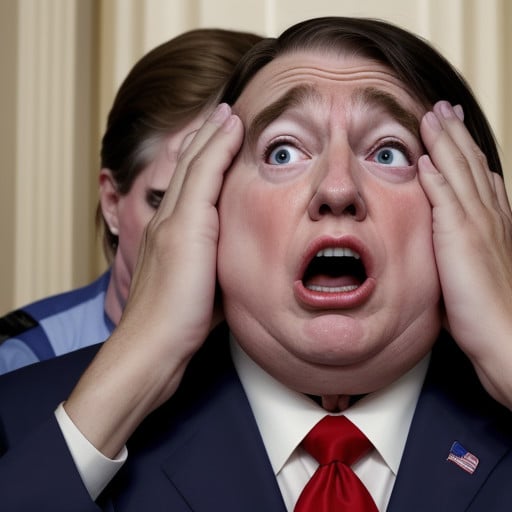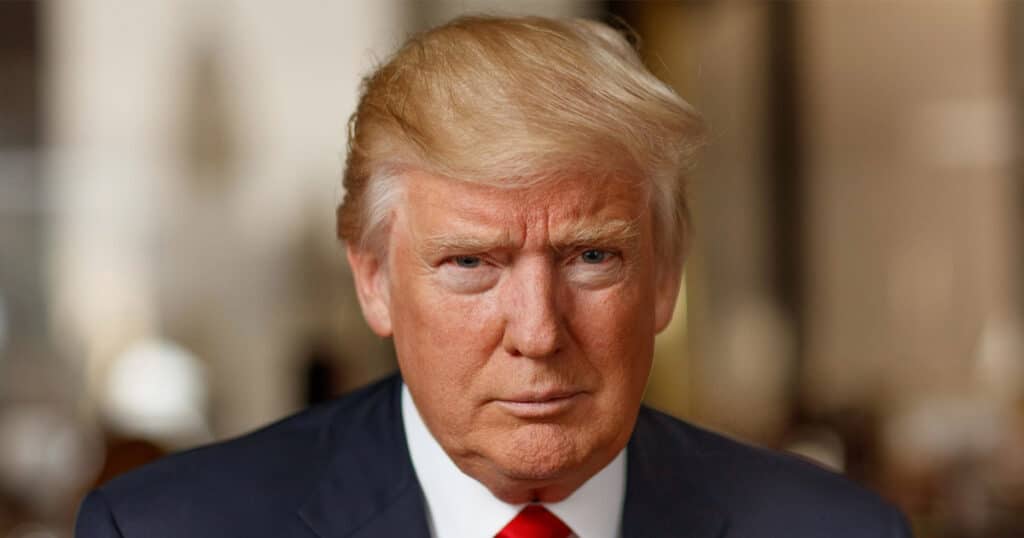
When Republicans Have the Trifecta, Their Record is Woeful
Perhaps the most depressing aspect of America’s future is the complete disconnect of the federal government from the people.
For the most part, governance and politics are synonymous, and the dividing line between the two is usually invisible, especially when the government is divided, which is most of the time. However, during those brief periods (usually two years) when one party controls the entire legislative process, it provides a rare opportunity to implement the agenda politicians promised during their last campaign.
Unfortunately, in comparing and contrasting the accomplishments of each party when they control Congress and the presidency, one party is woefully deficient.
I’ll give you one guess which one it is.
The Democrat’s Record of One-Party Governance
Since 2000, Democrats controlled Congress and the presidency between 2009-11 and 2021-23.
Barack Obama was sworn in as president when the 111th session of Congress convened. For about 18 months, the Democrats held a supermajority (60 votes) in the Senate. During that period, Democrats passed substantial legislation that changed societal norms and reshaped American Society. Bills passed in that session include significant new regulations, spending and forced behavior.
* Patient Protection and Affordable Care Act: This bill is known as “Obamacare,” and it fundamentally changed the entire healthcare industry. Instead of the private sector, Obamacare introduced significant new federally mandated requirements that raised costs, lowered benefits, increased wait times, reduced patient care and forced consumers to obtain insurance during short open enrollment periods.
* Dodd–Frank Wall Street Reform and Consumer Protection Act: Dodd-Frank completely changed the financial industry, implementing draconian regulations and creating bureaucratic oversight agencies, which crushed the small banking industry and stifled economic growth.
*Repeal of Don’t Ask, Don’t Tell: LGBTQIA+ members of the military could now be open with their sexuality.
In 2021, Joe Biden became the president of the United States after a bitterly contested campaign that was rife with voting irregularities and charges of fraud and rigging. The Democrats once again controlled Congress and the presidency, but the 117th legislative session was characterized by a 50-50 split in the Senate. Still, the slim majorities didn’t keep the Democrats from going big.
* American Rescue Plan Act of 2021: A massive $1.9 trillion spending bill gave free money to citizens, state and local governments, schools, the unemployed, illegal aliens and small businesses. Many economists trace the rampant inflation we have experienced since 2022 to this bill and the other massive spending initiatives.
* The Infrastructure Investment and Jobs Act: Another historic $1.2 trillion spending bill that was ostensibly earmarked for infrastructure improvements but contained billions in spending for woke climate change initiatives, such as electric cars and conversion of the electric grid to renewable energy.
* Inflation Reduction Act: A $1 trillion spending bill that included $891 billion in woke climate change projects and additional subsidies for Obamacare. In reality, instead of reducing inflation, it is widely believed the Inflation Reduction Act contributed to it.
The Republican Record of One-Party Governance
The Republicans were in the enviable position of having the government trifecta for three sessions of Congress spanning January 2001 to January 2007. However, it’s a bit misleading because Senator Jim Jeffords, a Republican from Vermont, became an independent and caucused with the Democrats. Still, Republicans enjoyed the longest uninterrupted period where they controlled the federal government since Herbert Hoover. Here is the major legislation they passed during that period.
* No Child Left Behind: This bill mandated the creation of standards-based education reform. However, instead of adopting universal standards, Republicans caved to pressure, and each state was allowed to develop its own standards, so the bill was essentially feckless.
* Bipartisan Campaign Reform Act: A bi-partisan bill sponsored by Senators John McCain (R-AZ) and Russ Feingold (D-WI), the legislation put limits on soft money in campaign financing and a variety of other restrictions. The bill was ultimately struck down by the Supreme Court in 2008.
* Sarbanes–Oxley Act: Another bi-partisan bill sponsored by Senator Paul Sarbanes (D-MD) and Representative Michael Oxley (R-OH). This bill mandated that top corporate management must personally certify the accuracy of financial information. It also significantly expanded penalties for engaging in fraudulent financial activity. Sarbanes-Oxley proved to be extremely anti-business, and it has been cited as one of the contributors to the 2008 financial crisis.
* Jobs and Growth Tax Relief Reconciliation Act of 2003: Tax cuts for individuals and businesses.
* Partial-Birth Abortion Ban Act: Self-explanatory. Right to life advocates would no doubt consider this a major piece of legislation, although in 2024, it is mostly ignored by leftist states.
Donald Trump assumed the presidency in January 2017, and Republicans enjoyed majorities in both chambers of Congress until January 2019, during the 115th session of Congress. Major legislation enacted includes:
Tax Cuts and Jobs Act: Significant tax cuts for individuals, families and businesses.
Republican’s Pathetic Record When Controlling Both Chambers
I recognize that some analysts may look over the list of legislative accomplishments while one party held the government trifecta and take issue with individual inclusions or omissions, but my criteria were quite simple. If legislation significantly affected the lives of ordinary Americans, or had a meaningful impact on foreign policy, it was included.
Unfortunately, when you look at how Congress does business when they control both chambers, you see a pattern of Democrat aggression and Republican timidity. This is exactly why the Republican base embraces Trump and is generally dismissive of their representatives in Congress.
For leftist Democrats, no initiative is too big. This includes packing the Supreme Court and eliminating the filibuster, which the radical wing of the party vigorously pursued in 2021. They came within one or two votes of accomplishing both goals, and the holdouts, Sinema and Manchin, were run out of the party.
Meanwhile, even when they were in charge, Republicans couldn’t muster the votes to repeal Obamacare, a wildly unpopular healthcare program that degraded the quality of care and raised costs. The lack of legislative accomplishments in the two-year period when Republicans controlled Congress under Trump is disgraceful.
Under Bush, half of his legislative “accomplishments” didn’t benefit Republicans at all. Sarbanes-Oxley was a disaster for banks and businesses, and campaign reform, which crashed and burned anyway, only succeeded in giving Democrats the advantage, at least before big money leftists like Mark Zuckerberg and George Soros arrived. When Silicon Valley began writing checks, Democrats no longer cared about campaign spending limits.
It’s almost as though if Republicans pass tax cuts, which the donor class loves, it’s considered a successful legislative session. Anything controversial our Senators and Representatives might have to fight for, and perhaps endure bad press, is tabled.
If by some miracle, Republicans garner enough votes in 2024 so that rigging the election is impractical, and they gain control of the Senate and retain their majority in the House, we cannot allow them to hide from the critical issues of immigration, mutilation of children, crime, climate change lunacy, teaching white hatred in schools, subservience to China, the deficit and a myriad of other issues that threaten the very existence of the republic.
We simply can’t afford another session of Congress dominated by weak-kneed, timid, cuck Republicans.



